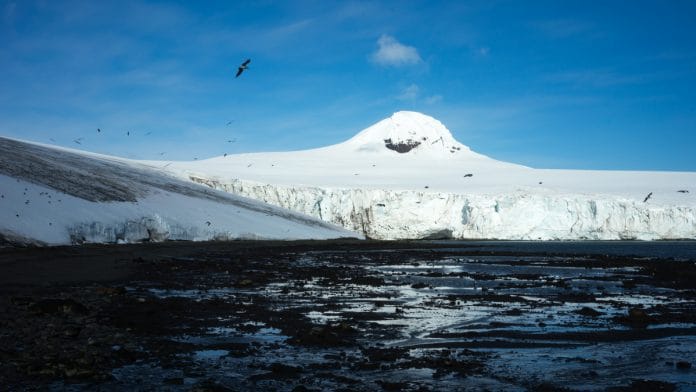New Delhi: We often wake up to reports of melting glaciers and rapid deforestation striking livelihoods. But not everyone feels the urgency of climate change. Stories with crude facts have often placed humans at the centre of all destruction and unfortunately made climate change the victim of global inaction. This has led to the rise of ‘climate fatalists’ — people who believe the planet is doomed.
Countering these narratives is a serious challenge as there are new stories about climate change every day. Therefore, scientists and video game creators across the world have now turned to virtual and augmented reality to help people experience and understand the effects of climate change at a more visceral level.
Virtual reality as a pedagogical medium
Human beings exist in an amalgamation of multiple realities — the physical, virtual, augmented and mixed reality. The stories that regale us will also have to evolve in order to effectively propel ideas to the digital natives of the modern world.
Data-Driven EnviroPolicy Lab (Data-Driven Lab), an interdisciplinary group of researchers, scientists, and programmers based at Yale-NUS College, Singapore studied the effects of virtual reality (VR) to communicate about climate changes. They found that effective VR creates an “empathetic experience” among humans, making the invisible causes of climate crisis visible, the distant effects immediate, and the nebulous harms highly personal.
Use of vivid images, avatars in comparison to voices, and text formats were found to elicit pro-environment responses in humans.
Scientists around the world (Stanford Virtual Reality Lab) have found that if an individual has a VR experience of cutting down a tree, during which she or he feels the vibration and sound of a chainsaw, that person is more likely to conserve paper.
VR’s success comes from the fact that it allows people to travel places they have never been to before, which in itself promotes sustainability by reducing carbon footprint involved in physical travelling. IMMERSE, for example, is a 360-degree film aimed at generating awareness and scientific understanding of coral reefs and the threat they face due to rising ocean temperatures.
Video games and total immersion
The video games market, which is pegged to be a $300 billion industry by 2025, has moved beyond the perimeters of its niche community to a much larger audience. Video games often position a player as the protagonist in virtual situations, inducing ownership and motivation.
Video games offer three stages of engagement based on the level of psychological barriers the player overcomes and the degree of knowledge transfer. First is ‘engagement’ which defines the compatibility of the player with the game and the investment of time and energy spent interacting with it.
Second is ‘engrossment’, which is when the player gets in the flow of the game and connects emotionally to it. The final stage is called ‘total immersion’ wherein the player feels a combined sense of sensory, challenge-based and imaginative spheres to experience the game.
For game designer and founder of Gameful, Jane McGonigal, video games are a “collaborative problem-solving environment”.
McGonigal feels that “in the best-designed games, our human experience is optimized: We have important work to do, we’re surrounded by potential collaborators, and we learn quickly and in a low-risk environment”.
Also read: This is how we can empower 8 billion minds by 2030
Serious or altruistic gaming
Video games that help develop familiarity with a new concept, stimulate the development of ideas and solutions and instill positive behaviour change come under the purview of ‘serious or altruistic gaming’.
A lot of futuristic scenarios around climate change can only be presented to the user in virtual or augmented realities. This is one of the greatest pulls of serious gaming.
Serious gaming incorporates game mechanics into everyday activities or situational scenarios with the influx of tangible incentives like points, badges, leaderboards, and pushes for behavioural changes.
For example, Flood Resilience Game allows players to experience and learn about flood risks and resilience of communities in river valleys. Developed by Poland-based Centre for Systems Solutions and the International Institute for Applied Systems Analysis in Austria, the game is targeted at disaster risk management (DRM) and development practitioners who would like to better communicate and promote risk preparedness and responses related to climate change.
The Swedish National Knowledge Centre for Climate Change Adaptation, at the Swedish Meteorological and Hydrological Institute (SMHI), together with Linköping University have also developed a climate adaptation game for a timeline from 2047-77.
In the game, players take on the role of a city planner and move around in an urban environment fulfilling different missions concerning climate adaptation. The game results are spread across metrics like savings, costs, Sustainable Development Goals (SDGs) and human lives saved.
Game creators pledge to help save environment
In September 2019, under the banner Playing for the Planet Alliance, 14 gaming platforms and game-makers like Sony, Microsoft, Rovio, Supercell, Ubisoft and WildWorks announced their commitment to climate change in the UN Secretary General’s Climate Action Summit.
Google Stadia, for example, will produce a new Sustainable Game Development Guide as well as fund research into how “green nudges” can be effectively incorporated into game-play.
“The video games industry has the ability to engage, inspire and captivate the imaginations of billions of people across the world. This makes them a hugely important partner in addressing the climate emergency,” Inger Andersen, executive director, UN Environment Programme (UNEP) had said.
The immersive environment built by video games can help people transition from a climate fatalist to becoming a climate realist by adding ‘lived experiences’ of the consequences of inaction and instilling skills to address climate crisis better.
The author is a public policy and corporate affairs consultant based out of New Delhi. All views expressed are personal.
Also read: Climate fight takes a step back with no deal on carbon markets






